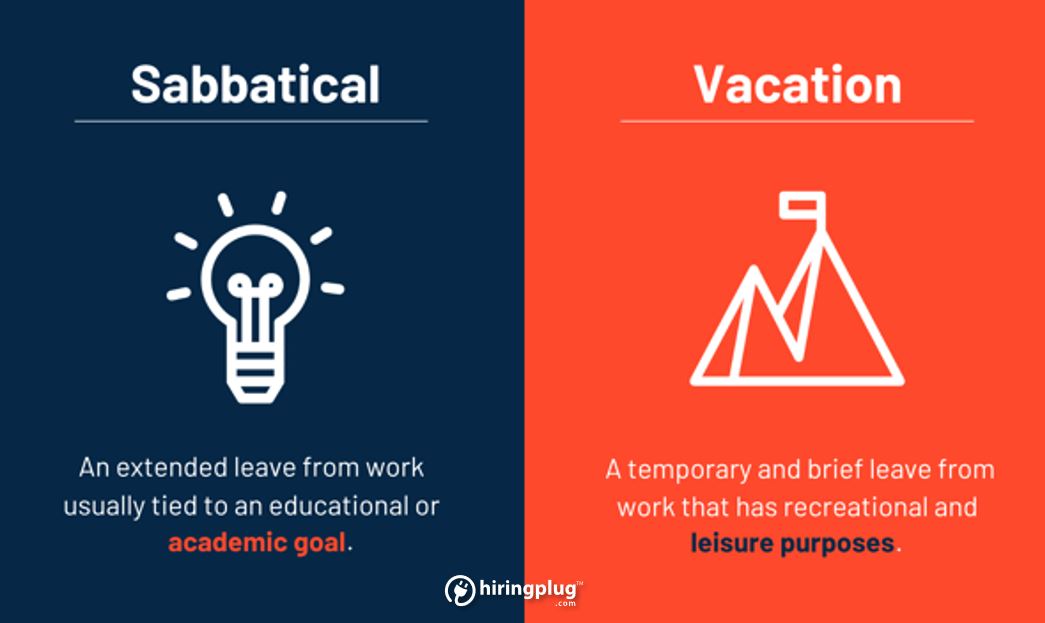We all must have heard at some point of our lives a motivational speaker instilling the belief that “Successful people don’t take breaks, they work when others sleep, and the only way to be successful in life is to work 15 hours a day”. Well, it doesn't have to be that way.
Taking time away from work does not make you any less successful than those who do not; in fact, it may help you be more successful and productive in both your personal and professional lives. Work sabbaticals are no longer considered a sin or taboo in the corporate world, and people are becoming more aware of the trend as firms and organizations begin to accept it in order to avoid losing talent in today's competitive environment.
So why take a sabbatical in the first place?
It can be taken into account that some companies are hesitant to implement a sabbatical program, paid or unpaid, as the employees are a valuable asset for a company, but companies with sabbaticals reap the benefits of such perks that other companies miss out on.
1) Employees return rejuvenated and often feel like they have a new job:
Many people tend to get burned out or feel stagnant doing the same job every day. An extended vacation or a time off from the corporate world can be a perfect way for an employee to feel renewed and re-energized, allowing them to return even more focused.
2) Employees find inspiring new ways to grow the business:
Employees discover creative new ways to build the business: It is a scientifically proven fact that people who take breaks from their day-to-day work develop an innovative approach to life, and thus bring in new ideas for the business they work in and help the business grow.
3) Employees are able to focus on their personal goals and interests:
In the midst of their day-to-day activities, people tend to overlook or ignore their personal interests, hobbies, or life ambitions. Because these aspects of our personalities establish who we are, it is critical for employees to rediscover their passion and begin focusing on what they desire as people.
4) Younger employees have the opportunity to step up and grow in their roles:
When an experienced employee takes a sabbatical, the company's less experienced or new employees have the opportunity to step up and take on the vacant responsibilities, allowing them to grow as people and as members of the organisation.
5) Employees feel motivated and encouraged to stay with the company:
In today’s world, many young employees often keep switching between different jobs and companies, as a result not spending more than 2-3 years with a company.
A well-defined and employee-friendly sabbatical programme will encourage employees to remain loyal to the company and continue working with them.
6) Companies who support and implement sabbaticals experience less employee turnover:
According to the Huffington Post, Clif Bar has a low employee turnover rate of less than 3%, and when the firm conducted a survey among its employees to determine which perks were the most useful to them, Sabbaticals came out on top.
What is the current scenario of sabbatical culture in the corporate sector right now?
While some companies may still be resistant to the idea of sabbaticals, the majority of companies have learned that they benefit both employees and the company.
According to Society of Human Resource Management 2018 Employee Benefits Report,
about 15% of American companies on average offer sabbatical leave to their employees. Of the 15%, 10% are unpaid and 5% are paid sabbaticals.
Here are some firms with sabbatical policies to consider:
1) Adobe
Sabbatical Details: Adobe offers a sabbatical programme that allows you to rest, recharge, and re-energize for a longer period of time. Who is eligible to participate? Regular employees in the United States who have worked for at least five years and are scheduled to work at least 24 hours a week.
2) Intel
Sabbatical Details: After seven years of full-time service, U.S. and Canadian employees are eligible to take eight weeks off. (Paid).
“I find that our employees really value the sabbatical benefit. Employees have “count-downs” to their first sabbatical on their office walls and long-tenured employees smile with a knowing jealousy. Sometimes, when employees return from sabbatical, there are parties or good-natured pranks played on them. Sabbatical is a tradition that sort of draws employees together.” -Christy Pambianchi
3) PayPal
Sabbatical Details: In addition to its Time Off programme, PayPal offers a paid sabbatical of four weeks for every five years of service, a benefit that few tech companies can match.
4) Deloitte
Sabbatical Details: Deloitte offers two sabbatical programmes: an unpaid one-month sabbatical for any reason, and a three- to six-month sabbatical to explore personal or professional growth opportunities in the areas of career development or volunteerism. Professionals continue to receive 40% of their pre-sabbatical base salary while on a three- to six-month sabbatical.
We can't expect someone to work for the rest of their lives without having any other ambitions or personal aspirations. Taking an unexplored route, pursuing one's passion, and following one's aspirations takes a lot of guts. Rather than criticising or criticising their decisions, we should applaud and encourage them.
Hey there !
Author Details
Related Blogs
Popular Tags
Subscribe Now










